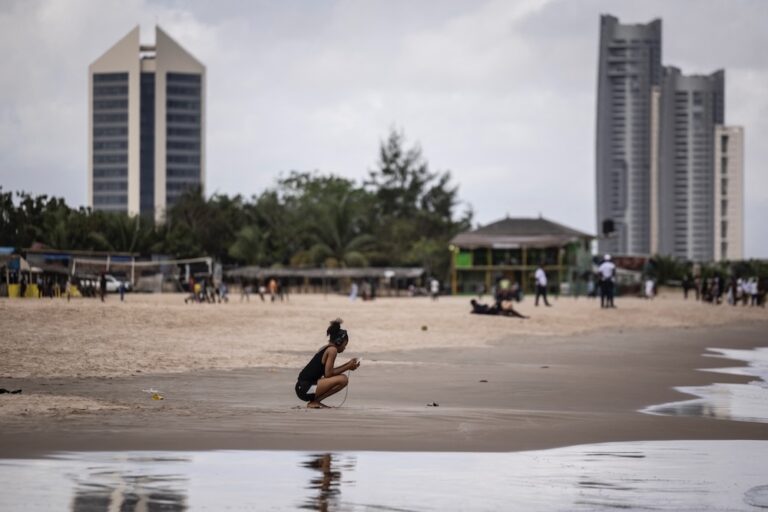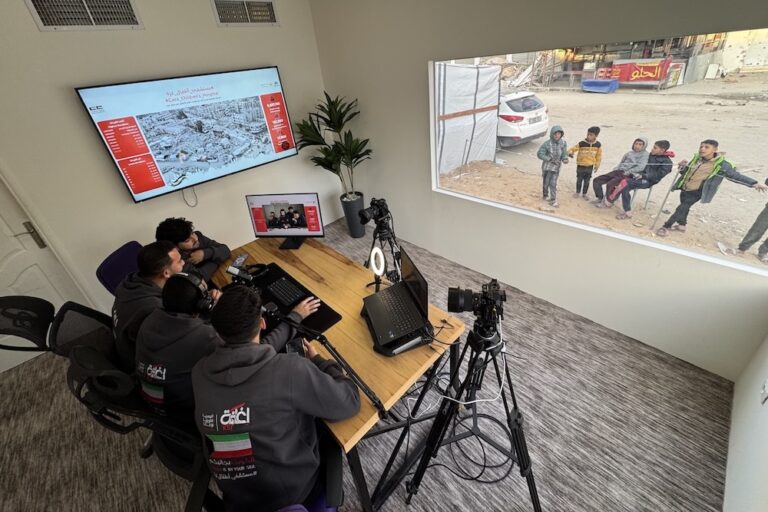“The EU cannot continue to undermine human rights outside of its borders under the guise of fighting terrorism and curbing migration. Surveillance technologies are at the crux of rising digital authoritarianism in the Middle East and North Africa region, and the EU should not sponsor this trend."
This statement was originally published on privacyinternational.org on 10 October 2022.
The European Ombudswoman, Emily O’Reilly, has launched two new investigations into Frontex, the European Border and Coast Guard Agency, and into the European External Action Service (EEAS), the EU’s diplomatic agency, in relation to their support to non-EU countries to develop surveillance capabilities and, in particular, their lack of prior human rights risk and impact assessments.
The investigations, opened on 5 October 2022, come in response to complaints filed by Privacy International, Access Now, Sea-Watch, BVMN, Homo Digitalis, and the International Federation for Human Rights (FIDH).
The Ombudswoman has now written to both EU agencies with questions, seeking clarification about their involvement in surveillance transfers.
“For years, the European Union has been supporting surveillance in non-member states without the proper accountability or transparency mechanisms. We welcome the two additional inquiries launched by the European Ombudsman following our complaints and we hope they will eventually force EU institutions to uphold the rights of millions of citizens within and outside the EU,” said Ioannis Kouvakas, Senior Legal Officer at Privacy International.
The investigation on Frontex is focused on the lack of prior human rights risk and impact assessments (HRIA) in relation to its technical assistance engagement with non-EU countries, such as capacity building and training in surveillance techniques, the transfer of surveillance equipment and other related support.
The inquiry includes questions on the training support on maritime law enforcement operations to the Libyan General Administration for Coastal Security (GACS), as well as on Frontex’s aerial surveillance in the Central Mediterranean Sea in cooperation with the Libyan Coast Guard. Frontex’s training programmes for GACS, Frontex’s projects in cooperation with EUCAP Sahel Niger, and the assistance project in the Western Balkans for the Service of Foreigners’ Affairs of Bosnia and Herzegovina are also referenced.
The EEAS investigation is focused on whether certain civilian missions carry out human rights risk and impact assessments (HRIA) before providing support. As detailed in the complaints, this support can range from helping draft surveillance or cybercrime laws to the actual transfer of surveillance equipment or know-how to non-EU countries.
Questions posed by the Ombudswoman to the EU agency mention the monitoring of the EUCAP Mali and Niger civilian missions, as well as EU Common Security and Defence Policy (CSDP) civilian missions in Palestine, Somalia, Niger, Mali, Libya, and Iraq.
“The EU cannot continue to undermine human rights outside of its borders under the guise of fighting terrorism and curbing migration. Surveillance technologies and draconian cybercrime laws are at the crux of rising digital authoritarianism in the Middle East and North Africa region, and the EU should not sponsor this trend. We welcome the Ombudsman’s investigation into this conduct, and we look forward to correcting the record on these arrangements,” said Marwa Fatafta, MENA Policy Manager at Access Now.
“For the past years, we have been witnessing Frontex’s inhumane cooperation with the so-called Libyan Coast Guard which led to illegal pullbacks of thousands of individuals to Libya. Based on different evidence, the EU ombudsman now opened an inquiry. Additionally, we recently sued Frontex for its lack of transparency. Our message is clear: we are watching and we will continue to fight Frontex’s border practices through all possible legal ways. Today and in the future,” said Bérénice Gaudin, Advocacy Officer at Sea Watch.
“We look forward to the results of this investigation. Any engagement of Frontex and EEAS with non-EU countries shall respect human rights safeguards. The lack of HRIAs is unacceptable and puts at risk the protection of fundamental rights and freedoms in Middle East and Africa,” said the team at Homo Digitalis.
“The EU qualifies human rights as ‘European value’. In addition to being inadequate, undermining their universal nature, this statement is misleading. Human rights is first about rights and obligations. The EU has to assess, respect and protect human rights in its activities. We count on the EU ombudsman to recall to the EU institutions the EU founding principles,” said Gaelle Dusepulchre, Deputy Director of the Globalisation and Human Rights desk at FIDH.
The European Ombudsman had already opened an investigation into the European Commission’s support for African countries to develop surveillance capabilities following another complaint by the same six human rights organisations.



